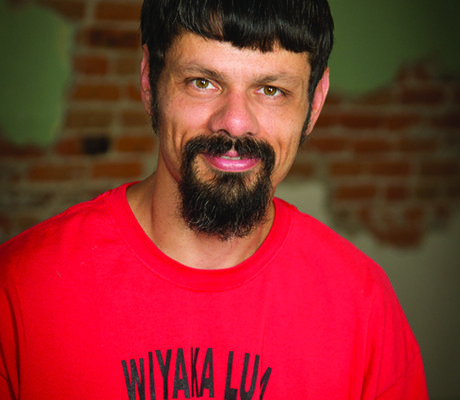They moved Omaha at least a hundred miles to the east, I was sure of it. Riding in my boss’s Lincoln through the Sandhills Sunday morning, Nov. 1, it sure seemed like it. G.O., Kathy, Barb and I were on a two-day trip to the state’s largest city to see what promised to be an amazing recycling facility.
We arrived at a downtown hotel before the sun set, then spent that evening on our own before the scheduled tour Monday morning. Everyone met in the lobby just after 8 a.m., piled back into the car and found our way to the exit for Firststar Recycling on Interstate 80 west. Turns out we were following a recycling truck making a delivery to the cavernous building. Firststar uses two-thirds of the 360,000 square-foot Omaha site. That (roughly) 237,600 feet is nearly four times the footprint of Alliance’s Pepsi-Cola plant.
G.O., Keep Alliance Beautiful’s Recycling Center manager, had met one of our tour guides, Danielle Easdale, before. As advertised, she spoke with an Australian accent. Easdale said she was raised in the Queensland area, the region near the Great Barrier Reef, and commented that her family was recycling when she was a little girl. Explaining that where she grew up is very eco-minded, Easdale added she has been in the recycling industry almost 20 years. She started with Firststar in Fremont, Neb., in 1997 and moved to Omaha in 2005.
Firststar’s Jeff Heck was the other tour guide. He has been with the company in Omaha for 12 years, currently serving as sales manager. Though he pointed out they have a smaller facility at Lincoln, the Omaha flagship employs 120 people full time working twenty-four hours a day Monday through Friday on three shifts. They also come in on occasion on Saturdays if it is busy. KAB has two four-hour shifts weekdays with six of us at the recycling center.
Like KAB, Firststar often has people who have been there a year, or two or three at least. Heck said they have turnover like anywhere else. While talking after the tour a woman walking through the breakroom replied she had been at the Omaha plant for 13 years.
The orange Hefty Energy bags KAB bales is the only material that goes from Alliance to the building we walked through. I had wrongly assumed such a massive facility would produce products from recycling as well as receiving and processing it. Instead, like KAB on a much smaller scale, Firststar currently performs the latter two. At every turn we saw part of the hundreds of tons worth of bales waiting to be shipped out.
Over the hour or so tour, I compared my daily tasks with the workers and the roles we witnessed. Forklifts buzzed around the floor like busy worker bees. Some carried bales from automated balers while others scooted a mix of loose paper, plastic, tin (and everything else) to the initial sorting machines — all bigger than an average house. Picking through and separating the contents of curbside bags is one of my main duties if there is nothing else of higher priority. At Omaha, masked employees stood along conveyor belts sorting what the machines did not.
Just as Alliance hosts trailers for the public and business clients, and a curbside option so does Firststar in Omaha. Heck said they have five drop off sites, including one at the plant parking lot. KAB’s trailers are emptied as needed, sometimes twice a week. In Omaha they get full almost every day and overfull on Monday, Heck elaborated. KAB picks up cardboard from about two dozen businesses with trailers at sites such as BNSF Railway, BBGH, Parker and Perrin. Sixty percent of Firststar’s material is from commercial customers. In Omaha, residents’ taxes fund the curbside recycling service, which is expected to soon increase volume as households will now have larger containers.
Next week I plan to get into the “when and where” of our Omaha tour.

